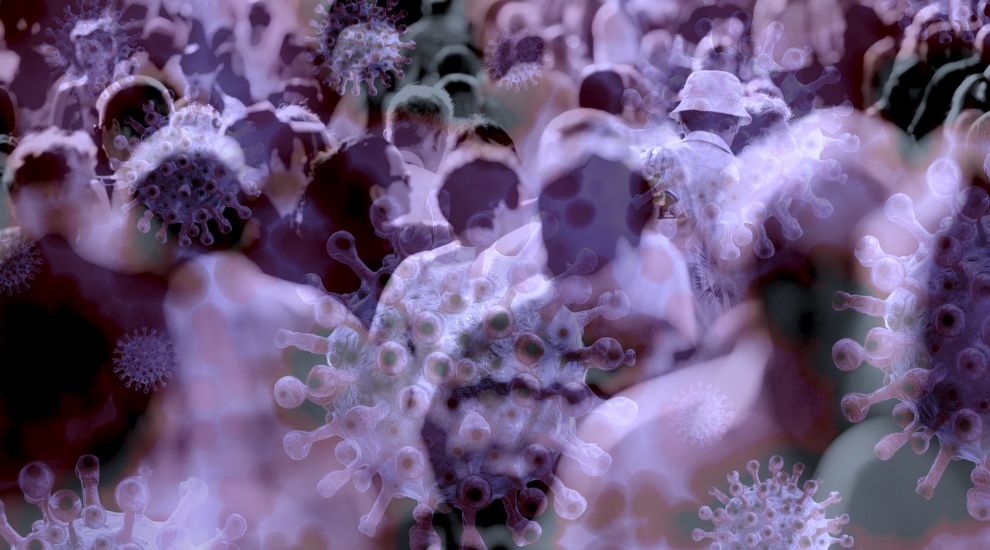


Each infected person in Jersey is passing covid to around two more people, a new report has said, as recorded cases fell just short of 1,000.
As of Friday, the number of people with covid in Jersey stood at 987 – 179 more than the previous day.
100 of those new cases were seeking healthcare, 70 were contact traced, just five were travellers and four people identified through workforce screening.
Seven out of 10 people were feeling unwell, while 294 people were showing no symptoms at all.
Since Thursday 8 July, 12 individuals have recovered and 179 new cases have been identified. 100 cases have been identified through seeking healthcare, 5 through inbound travel, 4 through workforce screening, 70 through contact tracing. pic.twitter.com/4WiiqiocYn
— Government of Jersey (@GovJersey) July 9, 2021
Three people were in hospital with the virus, one fewer than Thursday. No deaths were recorded.
The island’s reproductive number (R) – a measure of how many people each infected person goes on to pass the virus to – is currently between 1.8 and 2.2.
It’s the highest rate of transmission that has ever been officially recorded in Jersey – in December and January, when case numbers topped 1,000, the system of recording R was paused “due to sharp changes in testing rates.”
Thursday marked the first time that a report on Jersey’s R number has been published by the Government since 14 February because case rates were for many months too low to accurately calculate it.
On Friday, there were 6,856 people named direct contacts – as of Sunday, they have not had to isolate provided they agree to be tested and don’t return a postive result.
The direct contact policy change sparked significant upset in the teaching community, given the number of younger staff who have not yet had the opportunity to be fully vaccinated.
The National Education Union told Express earlier last week that staff feared they were being viewed as “collateral damage” by Government, and also were concerned about potentially spreading the virus to their students, which may lead to long-term effects.
On Friday afternoon, the national branch of NASUWT accused the Government of being “reckless”.
General Secretary Dr Patrick Roach said Ministers had failed to provide the scientific evidence to justify such a decision at a time when case numbers are soaring and before all school staff have had the opportunity to be fully vaccinated.
“The abrupt timing of this decision and the failure to give schools time to prepare has caused alarm and anxiety among staff and parents.
“Schools must now take such appropriate steps to ensure safety onsite, including revised risk assessments which may include the need for additional measures such as providing education separately for pupils who have been advised to take a covid test but who refuse to do so.
“Extra mitigations for staff who are at greater risk from covid will also need to be considered by schools.
“This pandemic is far from over and now is not the time for complacency by ministers.
“The focus should remain the safety and welfare of school staff, children and young people as we move towards the end of term.”
Reform Jersey said it had urged Ministers to meet with headteachers to hear their concerns, but that this request had fallen on deaf ears. Instead, civil servants were sent to meet with them.
Our latest statement on Covid developments.
— Reform Jersey (@ReformJersey) July 9, 2021
Because of the concerns about the virus spreading in schools, we have asked Ministers to urgently meet with headteachers to respond to their concerns.
They have declined to do so, and have instead sent civil servants to speak to them. pic.twitter.com/1wI2IP57Vp
The Government had said the reason it had scrapped isolation for direct contacts was primarily for children's wellbeing, rather than because the contact tracing system had crumbled under the pressure of rocketing case numbers and testing system glitches over the weekend.
The party added: "This situation has arisen because of the failures in managing the track and trace system.
"The Government must now be open and transparent about the consequences of their decisions, and be prepared to listen to those who are suffering the negative effects to ensure people are not abandoned and effective protections are put in place."
Earlier today, letters from Acting Medical Officer for Health Dr Ivan Muscat MBE were sent to children and families to thank them for showing “real courage, hope, and understanding” during the pandemic reassure them that "children and young people remain at the lowest risk from the effects of covid".
"Most children don’t have symptoms at all and if they do, they will be mild symptoms. But as with flu some will feel unwell and need to rest," he said.
Video: Dr Ivan Muscat answering a question about the long-term impacts of covid on youngsters.
He also recorded a series of videos answering common questions about covid.
Comments
Comments on this story express the views of the commentator only, not Bailiwick Publishing. We are unable to guarantee the accuracy of any of those comments.